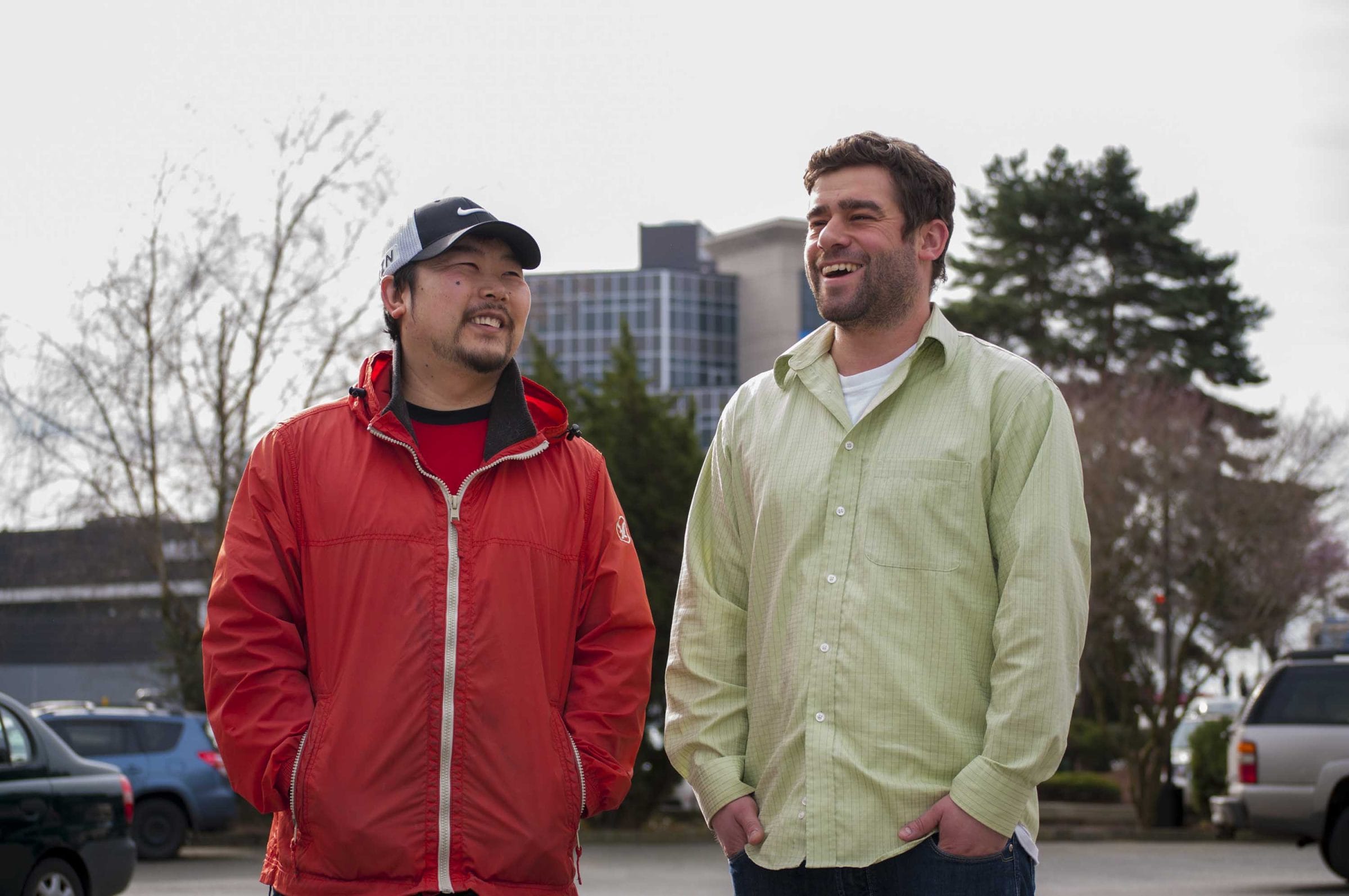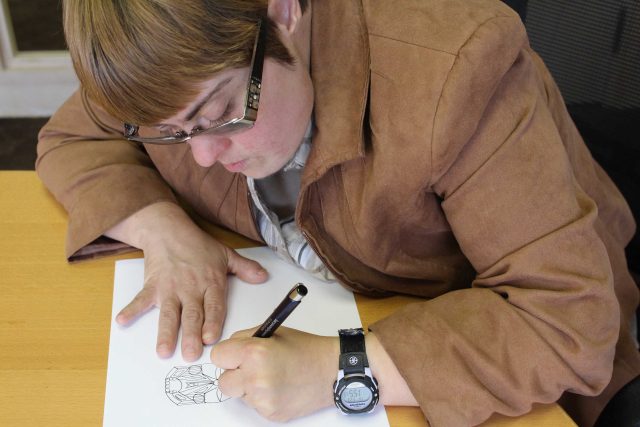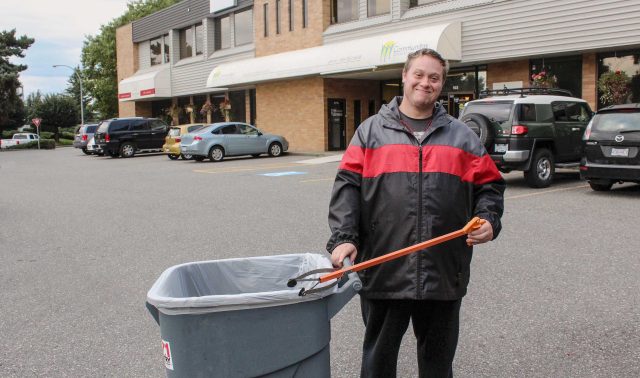
People
On the Path to Wellness
Brian Kroeker has two jobs and loves them both. He works as a Peer Support Worker (PSW), walking alongside people who live with mental health challenges. He also supports people through a program called Supported Independent Living (SIL). Both services are offered by Communitas Supportive Care Society and these jobs give Brian the opportunity to pay it forward. He knows exactly how his clients feel because he’s been there before.
Brian lives with schizo-effective disorder – bipolar disorder and schizophrenia combined. He knows what it’s like to be paralyzed by sadness, to feel paranoid and suspicious of surroundings, to hear voices in his head.
“I battled depression, experiencing feelings of sadness, hopelessness, no sense of worth and I even contemplated suicide,” he says. “I had a plan to end it but could not see it through, thinking of my family finding me.”
He has been hospitalized at different times in his life and given medication to help keep him stable. At times his condition has put a strain on family relationships but he recognizes that his experience with mental illness was hard for them as well. Brian knows that his family has always loved and supported him.
“I am really grateful for such a loving family,” he says.
Brian has had some challenging times in his past but for the last several years his journey has led him to a place of stability. He went from psychiatric wards to group home settings where he had more freedom and took on more responsibility as he was able. While he was in one of these group homes, he worked with a PSW and found that it was helpful to be with someone who had gone through similar experiences. It gave him hope. He decided to take the training as well and became a PSW so that he could support others.
“I am passionate about being a positive influence in the lives of the people I serve, to help them grow, learn, accept and love themselves,” he says. “My experience allows me to connect on a deeper level, to build trust, helping them to express their feelings so that they can begin to heal.”
Through his work with SIL, Brian helps the people he serves develop life skills so that they can become more independent. Helping with housekeeping or grocery shopping, managing money or looking for work are just a few of the ways that Brian offers support. He loves this work.
“There’s so much satisfaction in knowing that you’re making a difference and being able to help people get to a place where they can pay it forward too,” he says.
Micah Reimer manages the SIL program at Communitas. He first met Brian in 2011 when he came through the SIL program as a client. Micah remembers that Brian was determined to fulfill his goals.
“Brian is a really determined person, so he flourished in the program and soon became a mentor to other people,” Micah says. “When he graduated from the SIL program, it was just natural for Brian to want to give back to others by becoming a Peer Support Worker and by serving through SIL.”
Micah has also lived with mental health challenges. Depression and anxiety run in his family so much so that they joke about “the Reimer gene” or refer to suffering as a badge of honour.
“A sense of humour has gotten us all through a lot,” he says.
Although he has times when his mental illness is harder to deal with than others, he says it is manageable. He also says that working at Communitas has been a saving grace.
“Because I work here, mental illness has become normalized for me,” he explains. “The more people talk about it, the better.”
Both Brian and Micah feel it is important for the church to talk about mental illness and create safe places for people to share their stories. Brian feels that society in general is slowly changing and he finds that when he shares his story, people do not judge him. He hopes that this can also be true in the church context.
“We have to get it out there, get rid of the stigma that surrounds mental illness,” Brian says.
Micah agrees, adding that the church is in a unique position to offer hope to those living with mental illness.
“The saddest phrase I’ve heard in my work is ‘I’ve given up hope that I will ever change’ but people living with mental illness need to hold onto hope,” he says. “If we are persistent and recognize that supporting someone is a life-long commitment, then things really can change.”
It is also important to acknowledge that supporting someone with mental illness is a journey of mutual transformation. Certainly Brian and Micah have had opportunities to impact the lives of others but both men say that they have been deeply affected by the opportunity to receive the stories of those they serve.
“You just have to be willing to be open,” Micah says. “And with that comes knowledge, redemption and healing.’
Today, Brian is symptom-free and says his life is great. He credits his success to his family, a supportive community and his strong faith in God.
“I am truly blessed. I believe God has a plan for me and everything that happens in life happens for a reason,” he says. “That’s why I’ve experienced the things that I have and am able to share with others.”
This story was written for the May 22, 2017 issue of Canadian Mennonite magazine as part of a complete feature on mental health and the church.
Related Stories

Artist Creates Unique Colouring Book
Kara-Lyn Loewen has used her talents to create a unique colouring book. Find out how you can get your copy today!

Keeping It Clean
If you’ve noticed that the litter on your street has been picked up, the errant shopping cart is no longer on your lawn or the broken streetlight has been repaired, you might have Shane Toy to thank for that.

The Struggle To Bloom
Miya says that writing poetry helps her to process things and get them out in a healthy way. She will be reading one of her poems at our Poetry Reading and Artist Talk in May.